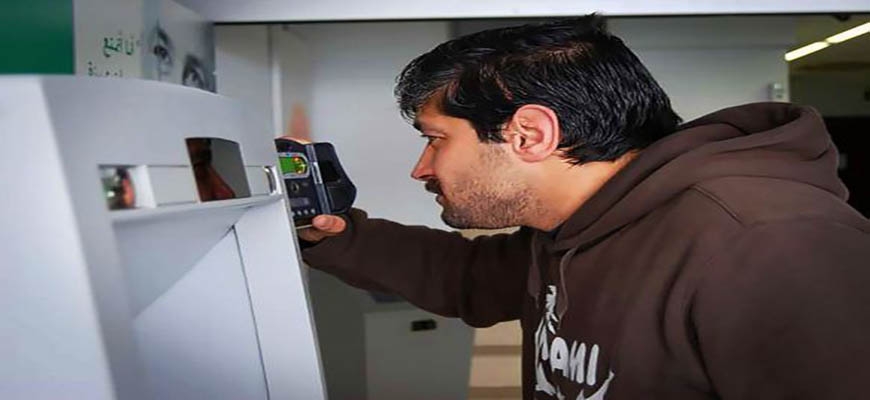
31 Mar 2015
Sria’s brutal civil war keeps forcing more and more people to flee their homes—nearly 4 million are refugees. Keeping track of them all, let alone getting aid to them, is a huge problem for humanitarian groups. But now, the United Nations’ refugee agency is banking on a high-tech solution: iris scans. For several months, officials with the United Nations High Commissioner for Refugees have met Syrian refugees arriving at the border of Jordan to register them and record their identities with an iris scan. It’s much more efficient than the old system of handing out ID cards. As the UNHCR explains: “Before, there were cases of people being registered both in urban and camp settings, but with iris scanning they can be registered only once. Also, iris data is centralized regionally so an individual registered in another operation, such as Lebanon, can be detected and the registration in the second country is cancelled.” More recently, the agency has partnered with local banks to allow refugees in Jordan to receive cash aid payments directly from an ATM, using their irises instead of a card. It’s the first-ever such program—about 23,000 Syrian families use it. There’s a lot of upside. Using a form of identification unique to each individual makes the system much more fraud-proof. It’s also efficient: the UNHCR claims that “for every dollar donated to the cash assistance program, more that 98 cents ends up in the pockets of refugees.” “Probably one of the most important things is that it reinforces the dignity of refugees,” adds Andrew Harper, a UNHCR representative in Jordan. “They no longer have to go to a UNHCR office and line up to receive their cash assistance. They can go to an ATM machine of one of our participating banks, just as anyone else would, and take money out.” The tactic of handing out cash, rather than goods like food and clothes, to help those in need is increasingly popular in the aid world. As Jacob Kushner reported for TakePart last year, it’s often a more efficient and effective way to go. Gathering biometric data on all these vulnerable people, however, raises some concerns. As the watchdogs at Privacy International point out: “There are very real risks involved, including the creation of databases filled with the personal data of a vulnerable population. Good intentions aside, failing to protect information of Syrians could have the opposite effect: these communities will be more, not less, at risk.” Sensitive data can also be hacked, for instance, by the Syrian Electronic Army, and questions have been raised about what happens to the databases once wartime is over. That’s something to think about not only for refugees but for folks right here in the U.S.—where growing numbers of students are having their irises scanned.

 عربي
عربي